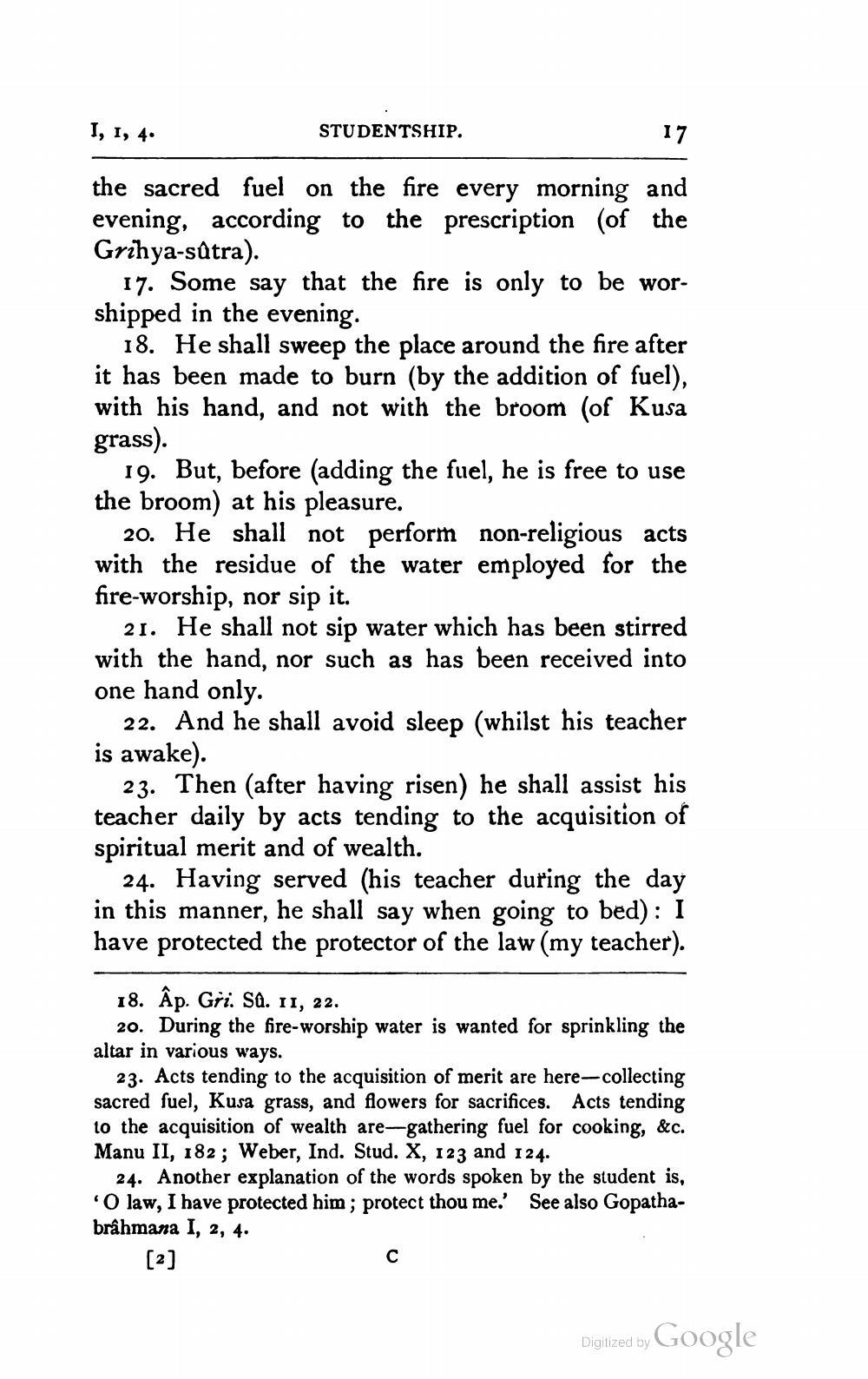________________
17
the sacred fuel on the fire every morning and evening, according to the prescription (of the Grihya-sutra).
I, I, 4.
STUDENTSHIP.
17. Some say that the fire is only to be worshipped in the evening.
18. He shall sweep the place around the fire after it has been made to burn (by the addition of fuel), with his hand, and not with the broom (of Kusa grass).
19. But, before (adding the fuel, he is free to use the broom) at his pleasure.
20. He shall not perform non-religious acts with the residue of the water employed for the fire-worship, nor sip it.
21. He shall not sip water which has been stirred with the hand, nor such as has been received into one hand only.
22. And he shall avoid sleep (whilst his teacher is awake).
23. Then (after having risen) he shall assist his teacher daily by acts tending to the acquisition of spiritual merit and of wealth.
24. Having served (his teacher during the day in this manner, he shall say when going to bed): I have protected the protector of the law (my teacher).
18. Ap. Gri. Sû. 11, 22.
20. During the fire-worship water is wanted for sprinkling the altar in various ways.
23. Acts tending to the acquisition of merit are here-collecting sacred fuel, Kusa grass, and flowers for sacrifices. Acts tending to the acquisition of wealth are-gathering fuel for cooking, &c. Manu II, 182; Weber, Ind. Stud. X, 123 and 124.
24. Another explanation of the words spoken by the student is, 'O law, I have protected him; protect thou me.' See also Gopathabrâhmana I, 2, 4.
[2]
C
Google
Digitized by




